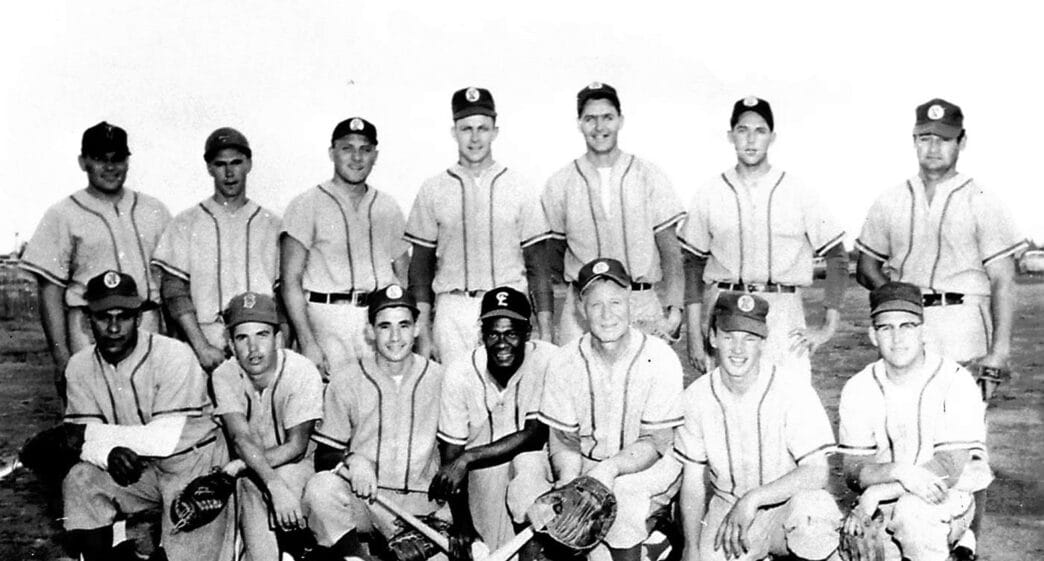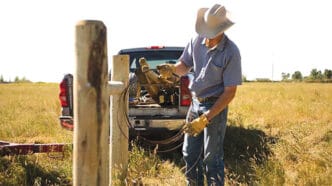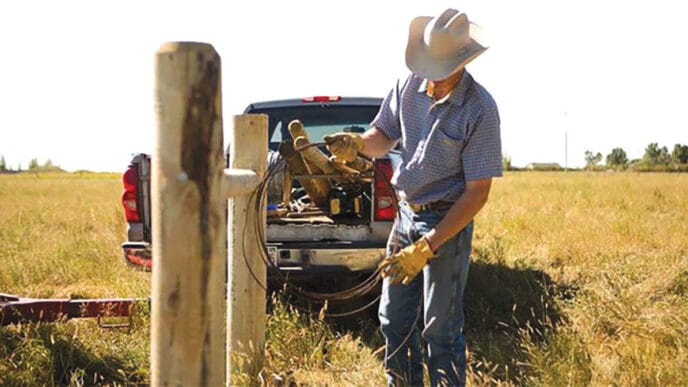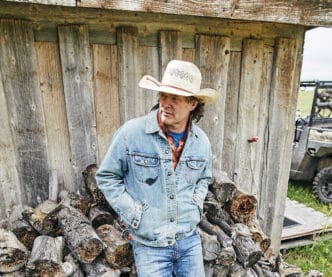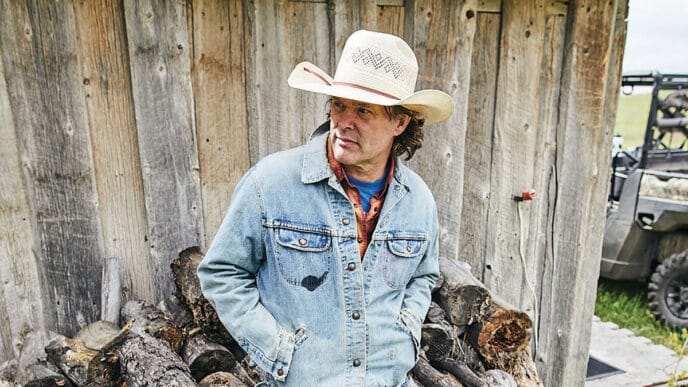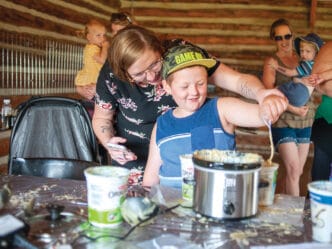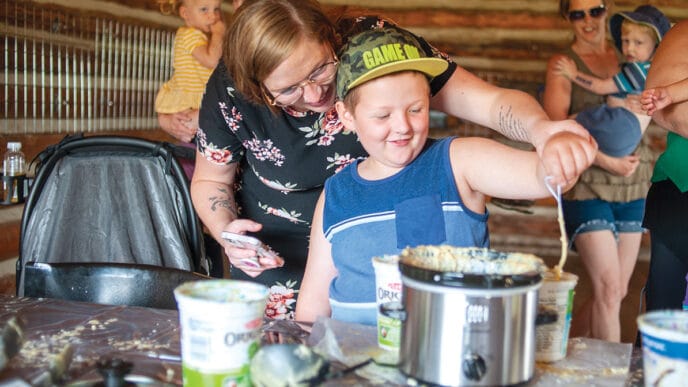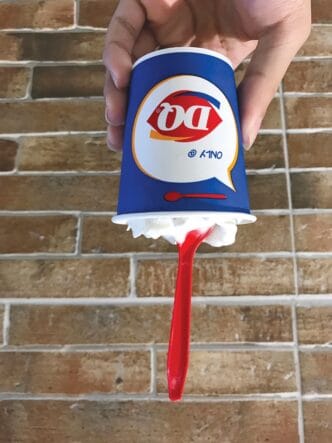Larry Flicek, back row, second from left, is pictured with the 1961 Neilburg Monarchs that won the North Saskatchewan Baseball League championship. The outstanding centre fielder and base runner will be inducted into the Saskatchewan Baseball Hall of Fame on Aug. 19 at the age of 85. Meridian Source File Photo
Larry Flicek hasn’t played baseball for more than 50 years, but he suddenly finds himself replaying highlights in his head from games he played with the Neilburg Monarchs starting in 1960.
The 85-year-old retired farmer will be inducted into the Saskatchewan Baseball Hall of Fame in Battleford Sask on Aug. 19 as a former star base runner and slugger in the North Saskatchewan Baseball League (NSBL).
“I didn’t know about this until the phone rang one day. I was surprised,” said Flicek last week from his home in Neilburg.
He was nominated by his former teammate, Don McIntyre, who remembers Flicek as an outstanding centre fielder in his day.
“He ran down may fly balls with his speed,” said McIntyre.
“His speed is what gave him the nickname ‘Dusty’ from the dust he raised while running.”
Flicek was officially notified about his upcoming induction by Leo Wurtz, who sits on the Hall of Fame selection committee.
Wurtz will be out of town that weekend but says for any player who’s inducted, it’s an important milestone of their career.
Flicek was thrilled to be nominated, but at first wasn’t sure about showing up in person to accept the award with his back troubles.
“You see, I’ve got mobility troubles. I’m not sure just how it’s all going to work out eh, but I’m going to go anyway,” said Flicek.
He was suddenly motivated to go after his wife recently rummaged through a closet and uncovered his original baseball uniform from his rookie season in 1960, but he won’t be wearing it to the ceremony.
“I’m going to donate it to the museum,” said Flicek.
He went on to say, “believe it or not, my daughter-in-law was looking through some old stuff the other day and found a catcher’s mitt that I got years ago. I’m still a baseball player at heart.”
More memories will pour back when someone reads Flicek’s career profile out loud at the induction dinner, including his record during that sensational first season when he won the league batting title with a .377 average.
“I never thought of myself as a great hitter. I was more of a defensive role player,” said Flicek despite his offensive prowess.
“I didn’t consider myself a very good hitter until later on.”
His hitting and exceptional base running ability helped the Monarchs win the NSBL championship in 1961 over the Unity Cardinals.
In 1963, Flicek led the league with 11 stolen bases.
He credits his quickness to being pretty good at track and field and his high baseball IQ.
“I learned to get a jump on the pitcher,” he said.
In 1967, Flicek finished third in batting with a .404 average and led the NSBL with 9 homers and 10 stolen bases.
Wurtz says it was a no-brainer to nominate Flicek for the Hall of Fame based on his skills and achievements during his 12-year career.
“He met the criteria; he’s had some outstanding performances in the past. His team relied on him for his skill and winning several championships,” explained Wurtz.
The NSBL was a high-calibre league in its heyday when Flicek recalls just about every team had about four Americans on their rosters, including a few who went on to the majors.
“They stayed here at my mom and dad’s place in the early 60s to play baseball,” said Flicek.
Some of the players were blacks who faced racial barriers playing in the U.S. and others were players from college teams.
“The Neilburg Monarchs were very well known throughout western Canada for their talent and skills,” added Wurtz.
The full story will be revealed in Battleford with some of Flicek’s eight adult children from two marriages in attendance along with some of his 15 grandkids.
Ironically, if it weren’t for his dad letting him play, he might have been stuck on the farm instead of entering the baseball hall of fame.
“We were farmers here, eh. My dad said I couldn’t play all summer because there’s a lot of fieldwork to do. We managed to work it out so I could farm and play baseball,” said Flicek.
The rest is history.



